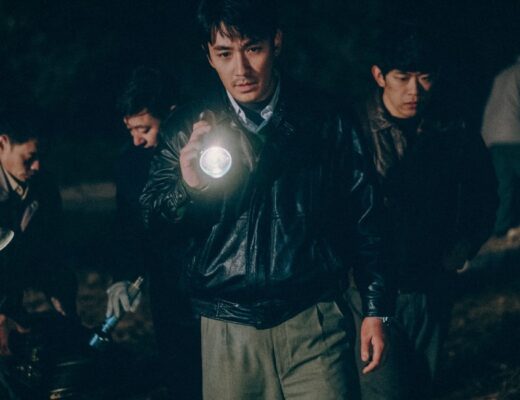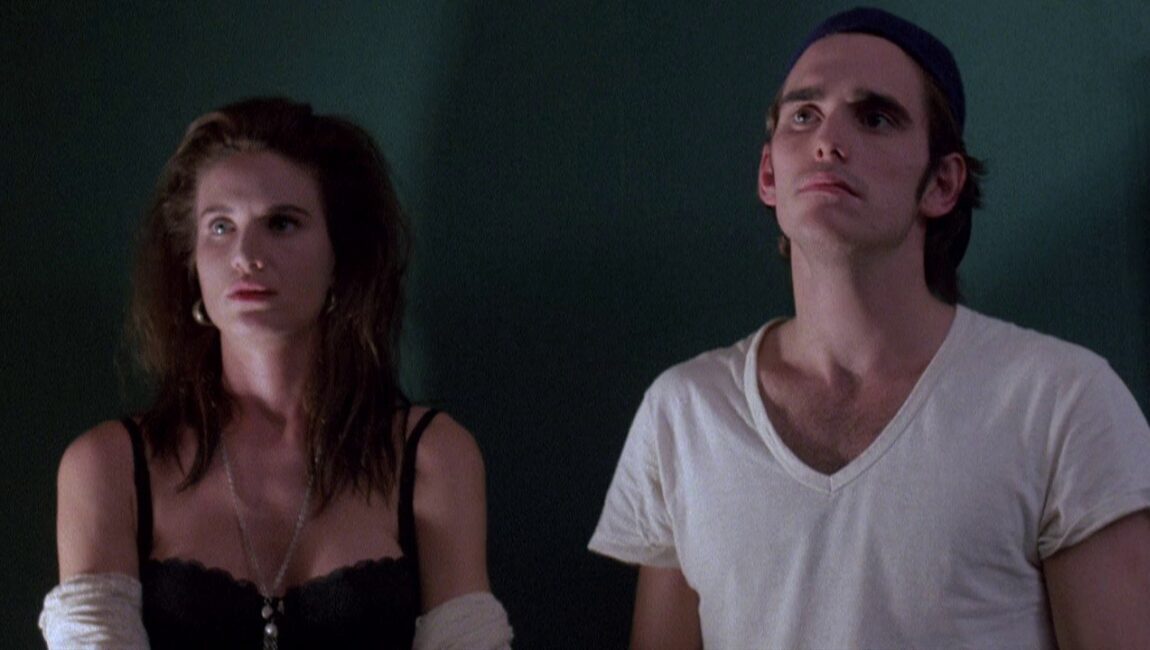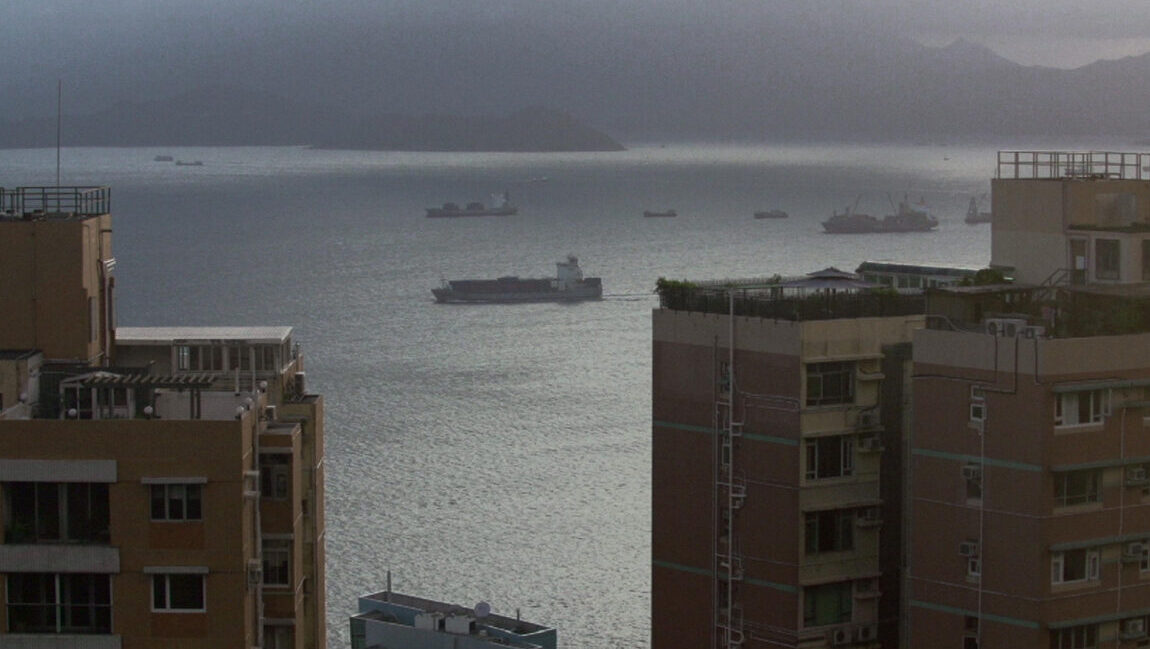Monster Hunter suggests that Paul W.S. Anderson has exhausted his bag of tricks and is soullessly recycling familiar fare to diminishing results.
The lore of Monster Hunter, the latest film from vulgar auteurist favorite Paul W.S. Anderson, concerns itself with the entanglement of two realms: our world and another one, never specifically named, that contains… well, monsters. Perhaps of greater interest, however, is the character of the film’s production, which reflects the exchange of artistic capital between two continents: North America and Asia, with the proud logos of Toho (Japan) and Tencent Pictures (China) plastered upon the opening credits. Indeed, Anderson has gone fully global with his latest release — it should also be noted this was largely filmed in South Africa and is partly financed by German independent production company Constantin Film, who contributed to the film’s massive 60 million dollar budget (they’ve also been collaborators with Anderson since the beginning, so they have something of a vested interest at this stage). All of this makes sense to some degree, considering the Chinese market is where the final Resident Evil installment made most of its global box office and the video game franchise being adapted in this latest flick is best-known in Japan (made by famed video game developer Capcom, who also boast a successful game titled…you guessed it, Resident Evil). But this interest in broadly appealing to overseas markets — unsurprisingly, this was released in the Mainland before the States — also extends to Anderson’s form this time around: Monster Hunter resembles a contemporary Chinese blockbuster more than anything he’s crafted before. Put differently, it’s vapid, empty spectacle that sands down any potential geopolitical commentary — there’s some lazily assembled subtext regarding U.S. imperialism in a sandy, foreign land, which falls completely flat considering the military power here simply acts in self-defense against…literal monsters — while also bearing zero emotional weight whatsoever.
Appropriately, things kick off with the kicking off of Tony Jaa’s The Hunter (the film’s real box office draw) from a giant, sandfaring pirate ship, led by Admiral (Ron Perlman, here looking like Will Ferrell if he had an anime haircut). We then cut to the “real world” — again, there’s hardly anything that distinguishes these two locations from one another except that one has bland-looking CG creatures running around — where Captain Artemis (Milla Jovovich) leads a United Nations military unit consisting of a bunch of nobodies and T.I. “Tip” Harris (who’s taken time out of his busy schedule of hunting down defilers of his daughter’s hymen) across the desert of some undisclosed country, right before getting caught in a sandstorm that transports them into the magical monster realm, where they must team up with the aforementioned Hunter if they hope to survive long enough to appear in the foreshadowed sequel. What loosely follows is less an organized narrative and more a series of difficult to parse action sequences, with the occasional line of tin-eared dialogue shoehorned in to remind us that there’s still living human beings running around this mostly computer-generated landscape. And while Anderson has never been the most accomplished screenwriter, his attempts at humanizing his leads here result in mostly hammy mugging (Jaa speaks no English in the film; again, a potential ploy to further appeal to global markets) and one-liners of the “point-to-giant-monster-and-shout-OMG” variety. He even mentions, rather limply in the press notes, that Artemis “might be a mother,” which is a rather brazen admission that he’s as clueless as viewers will be as to what exactly his hero’s motivations are.
But even if one were to enter into this work with a beneficial temperament (i.e. simply disregarding the need for things like an engaging structure), this would still fairly easily rate as the worst thing Anderson’s put his name on in a hot minute. The first hour or so is an incoherent mess of irregular editing rhythms, with little regard for spatial continuity between cuts; it doesn’t help that the film’s color palette, a mixture of piss-and-shit brown and murky grey, provides zero clarity to the onscreen (il)logic. Gone are Anderson’s usual clean and symmetrical compositions, and in their stead is a penchant for cramming as much visual white noise as possible into the frame at any given time; it’s bombardment with no gravitas, science without substance. He gets into a more natural groove once he ditches the sub-machine guns for fire swords, but it ultimately doesn’t matter much, as these are some of the least creative set pieces he’s constructed, which mostly consist of asking the performers to run up to whatever amorphous blob is in their way, get smacked around, lather, rinse, repeat. It’s bottom of the barrel filmmaking from a man who’s proven himself far better in the recent past — say what you will about Anderson’s Resident Evil franchise as a consistent whole (he didn’t direct the second or third, which were the two worst outings), but he at least had the ability to pull everything together for the fifth entry’s glorious postmodern mashup. The sixth RE film, unfortunately, proved that he had exhausted just about every good visual idea in his bag in the previous installments, which resulted in the director liberally cribbing from Mad Max: Fury Road. Here, with Monster Hunter, he’s found even less inventive ways to go about the same tedious goals.







